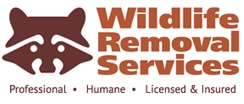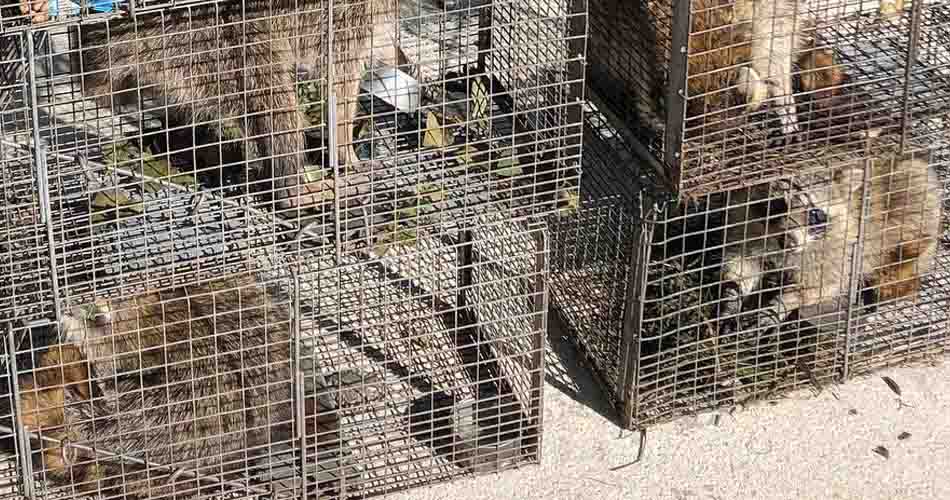Identifying Raccoon Feces?
If you have raccoons around your home and have spotted unidentified droppings in or around your home then please have a raccoon removal expert come take a look.
In this article, we will cover what distinguishes raccoon droppings from other types of animal feces.
Raccoons use a communal defecation site called a latrine. Their feces are dark and tubular and smell very pungent. They may be found around any of the following locations:
- The base of trees or forks of trees.
- Raised surfaces such as fallen logs, woodpiles, stumps, or even a large grouping of rocks.
- Patios or decks.
- Attics.
- Garages.
Why Raccoon Latrines Are Dangerous
Raccoons host Baylisascaris procyonis, which is a groundwork that can be harmful to humans. The eggs are passed via the feces of infected raccoons, and humans can become infected by ingesting the eggs of these roundworms—those who are exposed to an environment where raccoons frequent can be at risk. In addition, developmentally disabled people and young children are at a higher risk of infection. They may put their fingers in their mouths or even eat dirt or place other objects into their mouths with the eggs still attached to the objects or embedded in the dirt. The eggs are then swallowed and can infect humans.
What Should I Do If I Find A Raccoon Latrine?
The area must be adequately cleaned to prevent potential infection. Newly deposited feces aren’t infections and may lay latent for 2 to 4 weeks before they become infectiveTherefore, it’s important to promptly remove and destroy the feces to reduce the risk of infection via exposure.
If You Clean The Site Yourself, Here Are Some Helpful Tips:
- Properly prepare by wearing disposable gloves
- Avoid contaminating clothes and hands
- It’s important to wear rubber boots or cover shoes with disposable paper or plastic booties that can be thrown away to avoid bringing any eggs into the house.
- Wear an N95 mask respirator if you’re working in a confined space so that you won’t accidentally ingest any of the eggs or other materials found in the feces.
Outdoor Raccoon Poop Cleaning
Use a shovel or an inverted plastic bag that can be burned, buried, or thrown into the trash in a landfill.
Chemicals won’t kill roundworm eggs; however, heat will kill them instantly.
Treat any patios, decks, and other areas with boiling water or a propane torch.
Make sure to disinfect any and all tools used in the cleanup process.
Wash your hands well with soap and warm running water.
Launder your clothes in the hottest water possible and with detergent.
Finding Raccoon Poop Indoors?
- Lightly spray mist the latrine area with a spray bottle to avoid stirring up any debris or dust particles with eggs.
- Use a bucket with soapy hot water.
- Don’t use propane in an indoor area.
- Remove feces and other material contaminated with a shovel or an inverted plastic bag. It should be burned, buried, or placed into the trash that will be immediately taken to a landfill.
- Use a dampened sponge to wipe the area down.
- Clean your sponge frequently with hot soapy water.
- Flush all dirty water down a toilet.
- Disinfect your bucket with some boiling water.Place your used sponge into a plastic bag and place it into the trash to be taken to the landfill.
To further reduce the risk of infection, wash your hand with soap and warm running water.
Ensure to clean and launder all of your clothing with hot water and plenty of detergents to prevent infection. It would be wise to wash clothing twice in hot water and to use a hot setting on the dryer.

